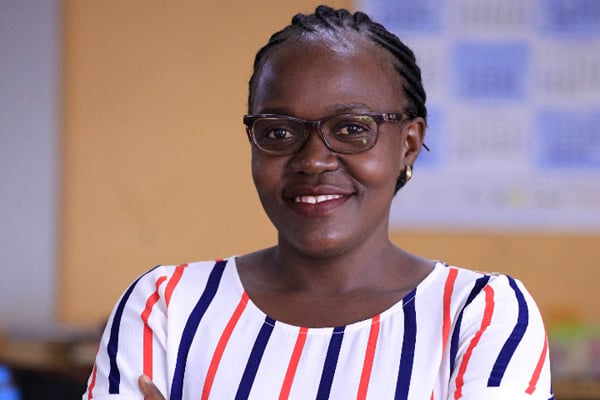Prime
Lawyers petition court over computer misuse law

Uganda Law Society president, Bernard Oundo, talks to a section of journalists during the 14th Annual Rule of Law Symposium on October 14, 2022. PHOTO | JULIET NALWOOGA
What you need to know:
- The law has now been challenged in court more than three times.
The Uganda Law Society (ULS) has petitioned the Constitutional Court challenging the newly amended Computer Misuse Law 2022 as null and void.
The lawyers argue that a number of sections, which include 24 and 25 of the Computer Misuse law, infringe on freedoms of speech and expression.
They are seeking a permanent injunction stopping the respondent (Attorney General) and all government agencies, authorities and officials from enforcing the impugned provisions in the Act.
The ULS further contends that all the provisions of the law are overly broad, vague and ambiguous and do not define a criminal offence hence it would be absurd for police to act on it.
The ULS president, Mr Bernard Oundo, in his affidavit supporting the petition, avers that the procedure adopted by the Parliament in passing the legislation fell below the standard set out in the Constitution with respect to the pre-requisite quorum required for the passing of the laws and as such the process was flawed.
Mr Oundo asserts that the law introduces offences that curtail the enjoyment of the freedom of expression, criminalises conduct that is otherwise protected, creates strict liability offences out of conduct and criminalises conduct from which a broad swath of the population derives their livelihood.
“That sections 12, 23A, 26A to D and the repeal of section 30 arising from the amended Computer Misuse Act 2022 are premised on considerations other than legitimate grounds for the limitation of fundamental rights and freedoms under the Constitution and that consequently they are neither necessary nor they amount to a justified limitation of the affected rights,” reads the petition in part.
The lawyers state that the mover of the Bill publicly stated that he introduced it to bar the fabrication of falsehoods and wrong things which are being used to earn.
They further state that Article 43 provides that fundamental rights and freedoms may only be limited if such limitation is in the public interest, acceptable, demonstrably justifiable in a free and democratic society but it appears the Bill was to curtail falsehoods and wrong things but not in public interest.
ULS faults the Speaker of Parliament for not taking precautions to establish if there is a requisite number of legislators in the House to debate and pass the Bill.
They add that the Bill introduced by the Kampala Central MP Muhammad Nsereko, was passed without quorum contrary to Articles 8A,88 and 94 of the constitution and Rules 24(1) and (3) of Parliamentary Rules of Procedure 2021 which provide that the quorum for a vote is one third of the MPs.
“Where any law contravenes the Constitution or purports to exceed the existing constitutional order such law is void and similarly any law that is inconsistent with the constitution is void,” reads part of Mr Oundo’s affidavit .
“Section 179 of the Penal Code Act Cap 120 which criminalises defamatory speech contravenes Articles 29 and 43 of the Constitution and is inconsistent with the freedom of speech and other media in a free and fair democratic society,” he adds.
The law, among others, penalises a person to a fine of more than Shs9m or imprisonment of more than 10 years if they are found culpable of accessing, without authorisation, another person’s information, data, voice or video records.
The law also penalises those who invade children’s privacy and share their information without consent of their parents or guardians.




